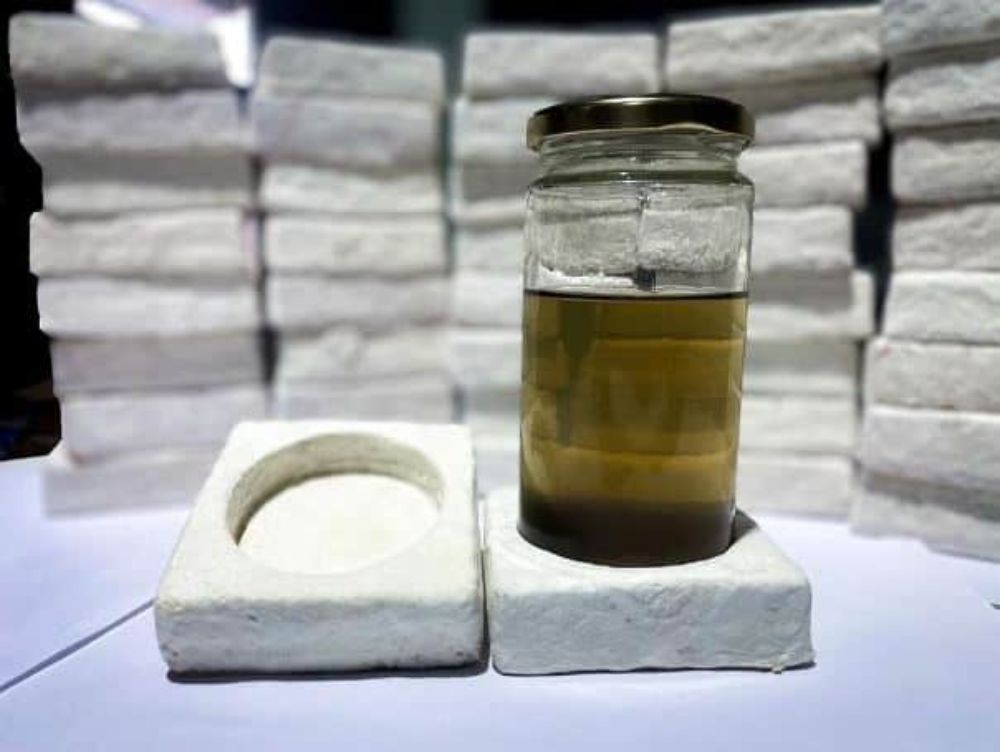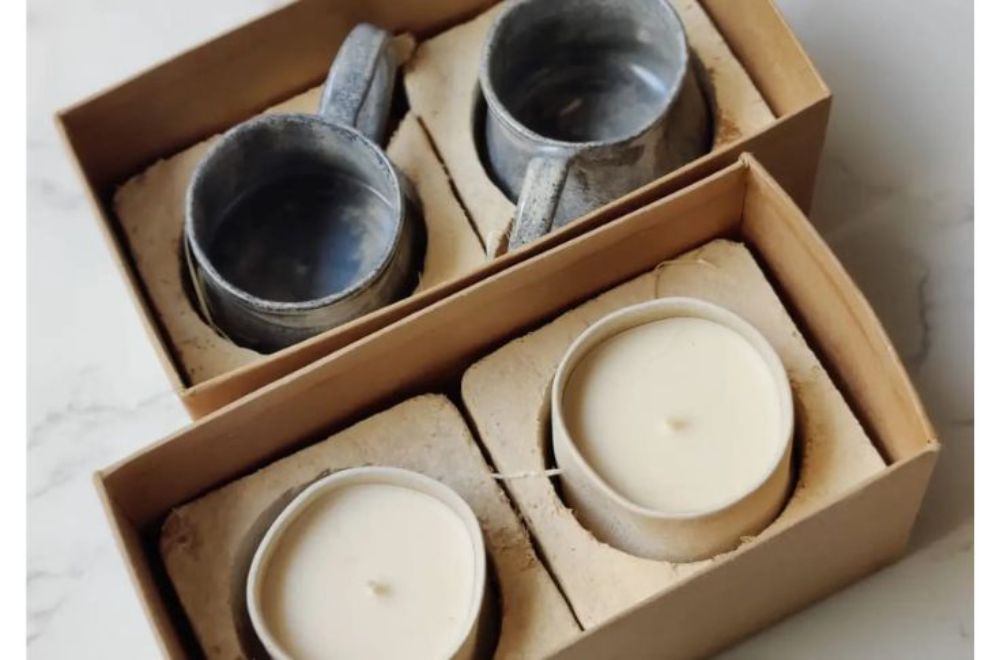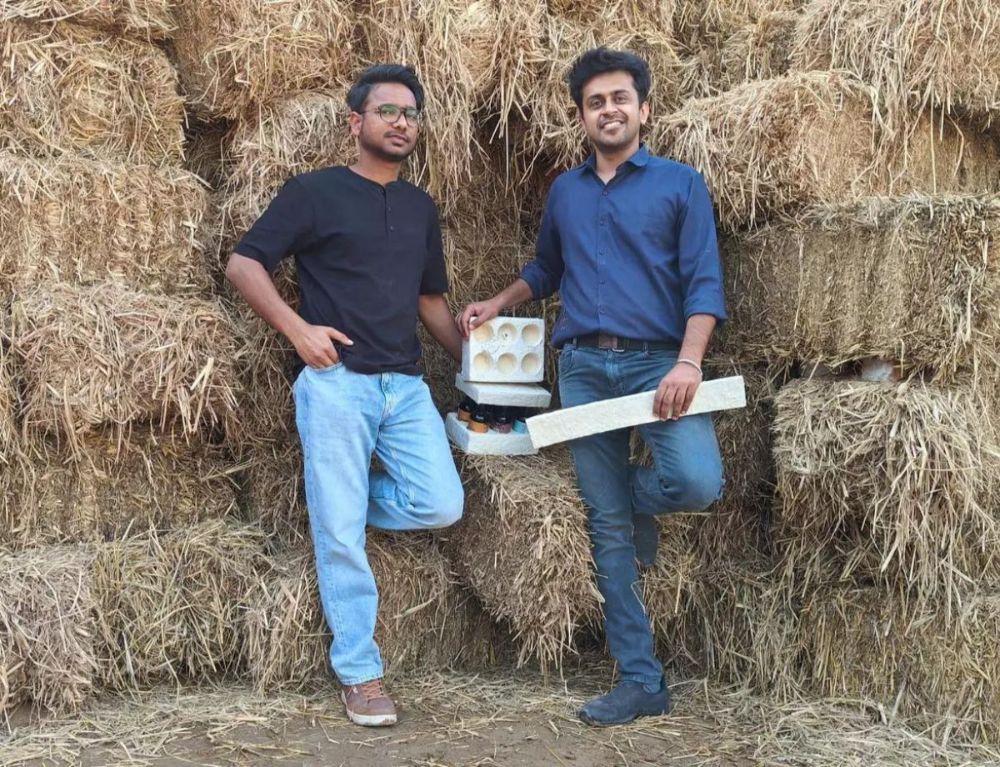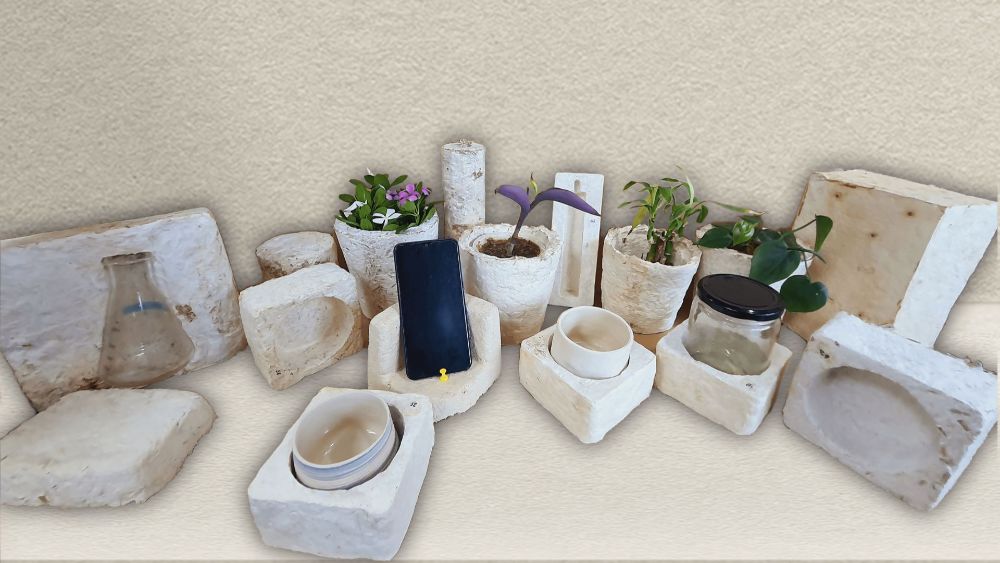In response to the increasing demand for eco-friendly packaging solutions and the rising concern about environmental sustainability, various alternatives to traditional packaging materials are gaining momentum in the market. One such innovative venture is Dharaksha Ecosolutions, a B2B startup founded in 2020 by Anand Bodh and Arpit Dhupar. This article explores how Dharaksha is addressing environmental challenges by converting paddy straw stubble into biodegradable packaging material, offering a sustainable solution to the packaging industry.

The Genesis of Dharaksha:
Driven by the alarming increase in field fire incidents, particularly stubble burning, Bodh and Dhupar identified a critical need for economically viable alternatives for farmers. Stubble burning has been a common practice due to the lack of alternatives for land preparation. The founders envision Dharaksha as a means to eliminate pollution sources and provide farmers with sustainable options, translating the startup’s name from two Hindi root words—“Dhara” meaning earth and “Raksha” meaning saving.

Biodegradable Packaging with Mushroom Roots:
Dharaksha leverages mycelium, the root of a mushroom, to decompose paddy straw and create biodegradable packaging materials. Cultivating a specific mushroom species internally using biotechnology, the startup ensures the mycelium’s unique qualities. Unlike commercially available strains, Dharaksha’s materials are grown, not manufactured, and can decompose in just 60 days in normal soil, presenting an eco-friendly alternative to plastic and thermocol.
Versatile and Sustainable Packaging Solutions:
Dharaksha’s packaging materials find applications in secondary packaging, offering custom designs that are thermal resistant, fire retardant, water-resistant, and anti-static. The startup aims to create thin-film plastics from mushroom metabolites, potentially replacing MDF wood and contributing to the reduction of plastic bag usage.

Stubble Procurement and Environmental Impact:
To ensure a constant supply of raw materials, Dharaksha collaborates with a network of aggregators to procure stubble from farmers in Punjab and Haryana. The startup’s mission extends beyond packaging as it aims to reduce stubble waste burning by 40% in the next six to seven years.
Business Model and Expansion Plans:
Initially bootstrapped with Rs 45 lakh from the founders’ personal savings, Dharaksha operates on a per-piece volumetric pricing model. With the capacity to manufacture 20,000 pieces per month, the startup plans a 5X scale-up in the next four months and a 10X increase by the end of the year. Dharaksha envisions distributed and franchise manufacturing, setting up numerous plants across India to tackle over 23 million tonnes of stubble waste.

Market Presence and Competition:
Dharaksha has secured partnerships with notable brands like The Gourmet Jar, BioQ, Fyllo, Kyari, Son of Soil, Bonomi, V-Guard, and Havells. While competing with local players in thermocol, paper, and plastic packaging, the startup also faces competition from global players like US-based Ecovative, a provider of sustainable alternatives to plastics and polystyrene foams.
Future Prospects and Funding:
With the global sustainable packaging market projected to reach $211.51 billion by 2032, Dharaksha has attracted investments from notable figures like Nithin Kamath of Zerodha and Anshuman Bapna, ex-CPO of MakeMyTrip. Currently in talks to raise Rs 16 crore from new investors, the founders emphasise their commitment to staying a material science company and aim to collaborate with brands and companies to showcase the positive impact of their product on pollution reduction.
